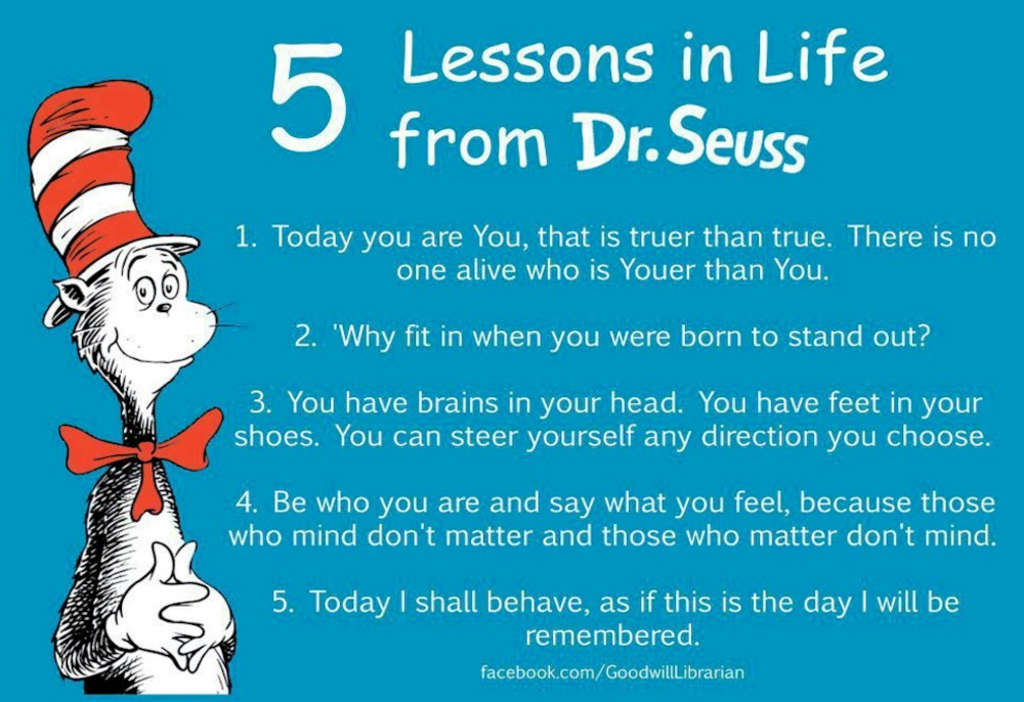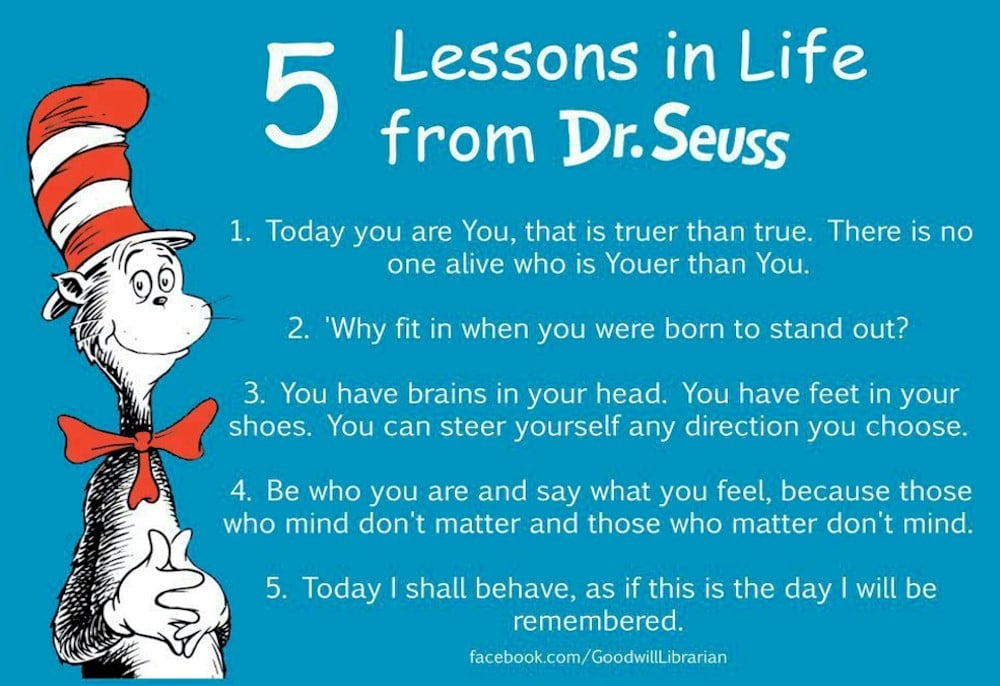Are You a Question Mark or a Period?
Like many of you, I have several meaningful quotes framed and either hanging on a wall or standing upright on a shelf in my office.
One of my favorites is tacked on the wall right next to my office door. It is there to remind me that there is always an opportunity to overcome any challenge. I just need to find it. If you have ever watched athletes run out of their locker room on the way to their field of competition, you will see them jump up and touch some artifact that has special meaning to their team. They do it for luck and to remind them to look for opportunities to score and win. I kind of do the same thing - minus the jump. I tap my quote every time I walk out my door as a reminder for me to look for unexpected opportunities to generate something new. The quote simply says that Our children enter our education system as question marks but leave as periods.
One of the first things I do when I begin consulting with a management team or giving a presentation to a company, is take a Sharpie and draw a big dot on the whiteboard. When I ask the group what the dot is, there is a lot of silence and some squirming. (I think everyone is hoping he or she will not be called on to answer the question.) Finally, in a somewhat hesitant and somewhat muted voice, somebody squeaks out, "It is a dot." That is the exact answer I expected.
When I do the same thing with a group of kindergarteners, one little tyke will yell that it is a chocolate cookie, another says it is a one-eyed ghost, and a third proudly shouts out that it is the belly button of a snowman! Our children enter our education system as question marks but leave as periods.
If this metaphorical expression does not reflect the truism that our sense of curiosity, exploration, open-mindedness, and creativity tends to diminish as we move through our educational system and professional careers, nothing does. Young children are naturally inquisitive and are eager to learn all about the world around them. When our daughters were that age, I was sure their favorite word was "Why." Why this? Why that? Why anything and everything? In the quote, then, the metaphorical question mark stands for curiosity, wonder, and an openness to what else is possible. On the other hand, graduating from college is seen as transitioning from questions and exploration to a more structured business environment where there are people, profits, policies, and procedures as guardrails. The metaphorical period, then, represents more comfort, routine, and same-ol' same-ol.' How many times have you heard something akin to That is the way it has always been done.
I am not disparaging the educational system. After all, I am a part of it. I am just always looking for inventive tools to put the question mark back in our business thinking. If you google "tools for creative business thinking," you will get more than 1.5 million hits. That is a lot. In my years of noodling around for ways to get question marks back in our creative thinking, I have found three tools that have proven not only to be effective but are interesting and fun too.
Every Day Is An Opportunity
Did you know there is a national Fish Taco Day? Or a national Bloody Mary Day, followed, of course, by the next day's national Hang Over Day? There is a National Game Show Day, a National Book Lovers Day, National S'Mores Day, and a National Nail Polish Day. There is even a National Lazy Day. Can you see the possibilities for innovative events and interesting marketing for your hotel? There are also national weeks that can be developed. National Waffle Week. National Line Dancing Week. National Construction Appreciation Week. The possibilities are virtually endless to discover fresh, fun, and engaging experiences for virtually all segments of your guests.
There are special days and special weeks for just about everything. To stimulate your staff's creative juices, go to the National Day Calendar website for imaginative ideas. There are so many opportunities, by day and by week, that the biggest challenge will be to decide which to include in your next strategic planning.
One of my favorite examples of how one hotel used the "day" tool as a starting point is its Dr. Seuss Day event. It was held on March 2nd, as that is the birthday of Theodor Seuss Geisel, famed author of more than sixty whimsical books that all ages know and love. The star of the event was the chef's creativity with the menu and plate presentation. From green eggs and ham to poodles with noodles, she twisted the familiar to be interesting, fun, and instagramable for adults and youngsters alike. Even the desserts were theme-centric with the "Cat's Hat" fashioned from layered vanilla and strawberry ice cream atop an Oreo cookie crust. What new-found event(s) can you create for your guests?
How Would (Fill in the Blank) Do It?
We have all been admonished to "think outside the box." That is often easy to say, but hard to do. So again, I looked for a tool to help me look at things differently and think about how to design and develop what can be an innovative and sold-out event. Put yourself in someone else's shoes to think about how he or she would tackle the challenge. This tool is a takeoff on the WWJD phrase. You are not looking to copy them, but to think about how their minds work and what values they hold that can give you a twist or a different perspective. A few examples:
How would Laura Bush think about an event? As a former First Lady, she was known for her refined style. So you could think about how elegance and sophistication could creatively be infused into the event using tasteful visuals, classic designs, and a sense of timeless grace to convey an exclusive nature of the event. Cultural and educational components might even be integrated into the event given her passion for education. By incorporating Laura Bush's values you would likely create an event that appeals to a diverse and engaged consumer.
Known for his investment skills and conservative approach to business, Warren Buffet would think about how to convey an atmosphere of conservative elegance that would reflect his preference for simplicity and long-term appeal. He would also emphasize the value proposition by offering benefits and experiences that are perceived to outweigh the cost of attendance. Integrating these values onto the event planning would produce an event that would appeal to guests sense of prudent decision-making and have an appreciation for enduring quality.
Thinking like the Harlem Globetrotters could bring a unique and energetic approach to developing a plan for your event. Entertainment and showmanship would be integral parts of the experience. And since the players interact with fans during their "games," your event could integrate interaction by incorporating unusual opportunities for guests to mix and mingle. By thinking like a Globetrotter, you will create a memorable hotel event that offers a dynamic and engaging happening for a very diverse group of attendees.
And if Donald Duck were to develop the plan for your hotel's event, his approach would be characterized by a mix of humor and enthusiasm. Being a family-oriented character, Donald would prioritize activities and features that encourage family participation and bonding. Tapping into Donald's adventurous spirit, the event would be an exciting journey or exploration with activities like a discovery trail or a twist on a themed scavenger hunt. By infusing Donald Duck's values into your thinking, your event would not only be entertaining and engaging, but also reflect some of his appeal and relatability.
Borrow from the Journalist
Once you have discovered an exciting idea for a hotel event (tool #1) and stepped into someone else's shoes to "think outside the box," (tool #2), you can use the journalism model as a checklist to make sure you have covered all the major elements for a successful event (tool 3#).
If you ever took a journalism class, you would probably remember the writer's mantra of "who, what, where, when and why." These 5 Ws can be adapted and applied to event planning in a strategic and comprehensive way. Here is how you can use each "W" in event planning.
1. Who is the market segment(s) for whom the event is being planned? Understand their interests and behaviors and especially their "hot buttons." The more your team understands the interests and behaviors of potential attendees, the more likely you will be able to design a successful event. I always develop detailed guest personas to create targeted and personalized marketing strategies, even going as far as to find pictures of the "ideal" market for the event's Vision Board.
2. What is the unique event all about? Be sure everyone on your team can define the event succinctly and clearly. Highlight what sets this event apart from other events. Confirm that everyone is on the same page when it comes to the details and the overall "vibe" that the guests will experience. This includes all the elements of the event itself from the menu to the location to the service to the activities, to the messaging, ad infinitum.
3. Where and how will you promote the event to guests? This can include both the traditional media and social media. But it also includes more creative targeted interactive channels such as tucking a poker chip into a check's folio to promote a Las Vegas night or, a heart shaped chocolate that can be mailed to guests for romantic summer dinner dance on the patio. There is a marketing axiom that says the more you can engage the consumers in the promotional message, the more likely they will come. There is another axiom that says consumers must be exposed to the message before it resonates with them.
4. When. Timing is crucial in marketing. Consider when your target market will be most attentive or interested in the event's promotion. Be aware of seasonal trends, holidays, and specific local events such as galas, tournaments, local festivals when scheduling the event and timing the event's promotions.
5. Why. Clearly and creatively communicate the reasons why people should attend the hotel's event. Craft compelling stories that will resonate with consumers' emotions and motivate them to pick up the phone or go to the hotel's website to make reservations.
Futurist Gerd Leonhard says that, in the future, there are five traits that leaders will have: Creativity, Imagination Intuition, Emotion, and Ethics. Unlock your hotel's creative potential with the power of these three transformative tools designed to ignite and elevate your imaginative prowess.
Your REVAR will thank you!
References:
- Creative Thinkering by Michael Michalko
- WWJD is the abbreviation for the phrase, 'What Would Jesus Do?' It became popular in the early 1900s with the publication of a book by Charles Sheldon.
Reprinted from the Hotel Business Review with permission from http://www.hotelexecutive.com/.

